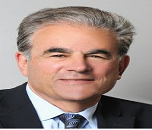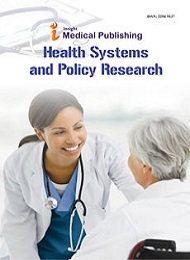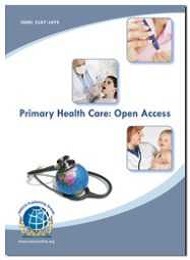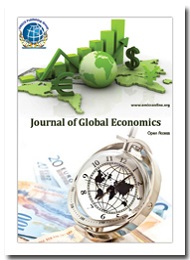Theme: Economic reforms in Health from Policies to Practices
Renowned Speakers
Health Economics 2016

Dear Colleagues,
Welcome to the 1st Global Health Economics Summit happening in Berlin, Germany. Global health economics has become a distinct field and a worldwide phenomenon. As we look towards the coming years, this field allows us to see key global health trends that will play out – affecting our countries’ health, health care systems, and financing.
Of these global trends, I would like to highlight four highly significant leading trends. The first global trend to consider is that the number of people over 65 worldwide will be over 600 million – almost 11% of the total population – by the year 2019. In Western Europe, it will equate to 21% of the population and will be even higher at 28% Japan.
The second global trend is that the number of people with diabetes is quickly growing. Today, there are 387 million individuals with diabetes – and that number is expected to increase by 80% by the year 2035. China and India will have the largest number of diabetes patients, at 96 million and 66 million respectively. This recently took hold in the United States in the form of the Affordable Care Act, also known as “Obamacare.”
The third significant trend is that payment models are changing to use "value-based payments." Pay for performance is now a global phenomenon. In addition, alternative delivery systems are increasingly being developed, including retail clinics, home health, tele-health and medical tourism; as well as personalized care and digital health.
Last, then fourth trend is that global healthcare spending continues to increase. Health care spending is expected to increase yearly by over 5%. The fastest growth will be in the Middle East and Africa, followed by Asia – where China, India, and Indonesia alone are likely to see double digit growth. In contrast, the slowest growth in spending will be in Western Europe.
These are important trends, a number of which will be discussed at our meeting. Again, I am excited to invite you all to take part in this conference and to make this event a grand success.
Sincerely,
![]()
Richard M. Scheffler
Distinguished Professor Health Economics and Public Policy
School of Public Health and Goldman School of Public Policy
University of California, Berkeley
Health Economics 2016 invites all the participants from all over the world to attend Global Health Economics Summit during July 25-26, 2016 at Berlin, Germany which includes prominent keynote presentations, Oral talks, Poster presentations and Exhibitions. Health Economics conferences are conducted annually to globalise your research.
Economists health care conferences are global events which are a platform for cost-effective improvement for health outcomes. Health Economics conferences invite Health economists, Doctors, Physicians, Healthcare policy makers, surgeons, young researchers, industrial delegates and talented student communities under a single roof where networking and global partnering happens for the acceleration of future health research. Economists health care conferences expose the student to the wider related academic disciplines of importance in understanding the interaction of economics and global health, such as epidemiology, public health and health policy analysis.
Track 01: Health Economics:
Health Economics deals with the worldwide health care including the areas of research & policies improving the health care system of the people achieving health equity for all people worldwide and protection against the global threats in regard of public health. It determines the health issues that transcend national boundaries and governments and call for actions on the global forces that determine the health of people.
Related Health Economics Conferences| Public Health Conferences | Healthcare Meetings
World Congress on Public Health and Nutrition March 10-12, 2016 Madrid, Spain; 4th Asia-Pacific Healthcare Summit July 18-20, 2016 Brisbane, Australia ; International Conference on Nanomedicine and Nanotechnology in Health Care July 25-27, 2016 Bangkok, Thailand; 2nd eHealth and Telemedicine Summit October 31-November 2, 2016 Istanbul, Turkey; Healthcare Systems Process Improvement Conference Feb 17-19, 2016, Hilton-Americas, Houston; GHIC 2016:Global Health Conference April16-17,2016 New Haven, USA; Health Policy and Health Care conference June 12th and June 15th, 2016 Pennsylvania; EUHEA Conference on Health Economics July 13-16, 2016 Hamburg; The 2nd Annual Conference on Public Health July 28-29 ,2016 Malaysia. International Health Economics Association,Philadelphia, USA;
European Health Economics Association , Basel , Switzerland
Track 02: Health Economics and International Economics:
Health Economics and International Economics is an applied field of study that allows for the systematic and rigorous examination of the problems faced in Health Service research. Health economics is used to promote health through the study of health care providers, economic resources, hospitals and clinics, managed care and public health promotion activities.
Related Health Economics Conferences| Public Health Conferences | Healthcare Meetings
2nd International Conference on Sports Medicine and Fitness April 18-20, 2016 Dubai, UAE ; International Conference on Medical Writing and Healthcare Communications April 28-29, 2016 Dubai, UAE ; 5th International Conference on Occupational Health and Safety June 06-07, 2016 Dallas, USA ; International Conference on Pediatric Nursing and Healthcare July 11-13, 2016 Cologne, Germany ; 10th Asia Pacific Biotech Congress July 25-27, 2016 Avani Atrium, Bangkok, Thailand; SARC Second International Conference on Addiction, Prevention, 26-28, JAN 2016, Saudi Arabia Jazan, Saudi Arabi ; International Conference on Healthcare and Applied Science Boston, United States of America, February 2016 ; 11th International Conference on Healthcare and Biological Research (ICHBR), 21-22 February 2016 Dubai, United Arab Emirates ; 11th International Conference on Advances in ICT for Emerging Issues in Society (ICT-eis), 24-25 February 2016, Dubai, United Arab Emirates; PSPC 2016 - 9th Annual Poverty and Social Protection Conference February Bangkok, Thailand; American Society of Health Economists , Washington, USA; African Health Economics and Policy Association, Accra, Ghana
Track 03: Health Economics and Policy:
Health Economics is a field of study that applies the theoretical concepts and empirical methods of economic analysis to various issues throughout the health sector, ranging from understanding the underlying patient, provider and insurer behaviours to evaluate various healthcare interventions. It provides specialisation in the related fields of health economics, health policy and health care management with a particular focus on international health systems. Economists health care conferences develop the capacity to design health reform programs, analyse Health Statistics policy effectiveness, perform economic evaluations of health care interventions, and identify challenges for policy implementation and governance issues by combining management skills with a sound knowledge of economics and public health policies.
Related Health Economics Conferences| Public Health Conferences | Healthcare Meetings
10th Global Nursing & Healthcare conference August 18-20, 2016 Sao Paulo, Brazil; 2nd International Conference on Hospice and Palliative Care September 29- 01 October, 2016 Toronto, Canada; World Pharma Congress October 31-November 02, 2016 Las Vegas, USA ; 2nd eHealth and Telemedicine Summit October 31-November 2, 2016 Istanbul, 5th International Conference on Occupational Health and Safety June 06-07, 2016 Dallas, USA; Healthcare Systems Process Improvement Conference Feb 17-19, 2016, Hilton-Americas, Houston; GHIC 2016: Global Health Conference April16-17,2016 New Haven, USA; Health Policy and Health Care conference June 12th and June 15th, 2016 Pennsylvania; NutriFood2016- International Conference on Advances in Human Nutrition, Food Science and Technology Toronto, Canada, June 2016 ; EUHEA Conference on Health Economics July 13-16, 2016 Hamburg. Finnish Society for Health Economics, Kalastajanpolku, Finland; Indonesian Health Economic Association, Yogyakarta, Indonesia
Track 04: Health Economics and Financing:
Health Economics and financing deals with how financial resources are generated, allocated in health systems and is concerned with how to move closer to universal issues related to providing sufficient funds for health; overcome financial barriers in regard of health policies to provide an efficient health services. Good health is essential to human welfare and to sustained economic and social development. WHO's Member States have set themselves the target of developing their Health facilities health financing systems to ensure that all people can use health services while being protected against financial hardship associated with paying for them.
Related Health Economics Conferences| Public Health Conferences | Healthcare Meetings
Nutrition and Public Health Congress March 10-12, 2016 Madrid, Spain; 10th Asia-Pacific Biotech Congress July 25-27, 2016 AVANI Atrium, Bangkok, Thailand; International Conference on Nanomedicine and Nanotechnology in Health Care July 25-27, 2016 Bangkok, Thailand; 2nd eHealth and Telemedicine Summit October 31-November 2, 2016 Istanbul, Turkey; 10th Global Nursing & Healthcare conference August 18-20, 2016 Sao Paulo, Brazil ; Healthcare Systems Process Improvement Conference Feb 17-19, 2016, Hilton-Americas, Houston; GHIC 2016: Global Health Conference April16-17,2016 New Haven, USA; Health Policy and Health Care conference June 12th and June 15th, 2016 Pennsylvania; EUHEA Conference on Health Economics July 13-16, 2016 Hamburg; The 2nd Annual Conference on Public Health July 28-29 ,2016 Malaysia. Nepal Health Economics Association, Kathmandu, Nepal; Singapore Health Economics Association, Singapore
Track 05: Health Economics and Health Care:
International Health Economics and Health Care is the field identifying with authority, administration, and organization of general public health, health awareness systems, clinics, and doctor's facility systems. Healthcare executives can help improve life for hundreds, even thousands of people every day. Healthcare executives have a sense of social mission—they deeply care about the people they work with and serve. Hospitals and healthcare organizations provide opportunities for those who want to “do well by doing good.”
Related Health Economics Conferences| Public Health Conferences | Healthcare Meetings
4th Asia-Pacific Healthcare Summit July 18-20, 2016 Brisbane, Australia ;International Conference on Nanomedicine and Nanotechnology in Health Care July 25-27, 2016 Bangkok, Thailand; World Congress on Medical Sociology and Health September 06-07 Rome, Italy ; 2nd Telemedicine and eHealth Summit October 31-November 2, 2016 Istanbul, Turkey; 10th Global Nursing and Healthcare conference August 18-20, 2016 Sao Paulo, Brazil ; Healthcare Systems Process Improvement Conference Feb 17-19, 2016, Hilton-Americas, Houston; GHIC 2016:Global Health Conference April16-17,2016 New Haven, USA; Health Policy and Health Care conference June 12th and June 15th, 2016 Pennsylvania; EUHEA Conference on Health Economics July 13-16, 2016 Hamburg; The 2nd Annual Conference on Public Health July 28-29 ,2016 Malaysia. Vietnam Health Economics Association, Hanoi, Vietnam; American Society of Health Economists , Washington, USA
Track 06: Health Economics and Health care Markets:
Health Care Markets Group is a healthcare advisory and investment banking firm that has three operating units: a Primary health care advisory unit, which provides strategic guidance and customized research; a specialized healthcare investment banking unit, which develops and implements plans to enhance client value; and a finanace unit, which raises debt/equity funding for healthcare related projects.
Related Health Economics Conferences| Public Health Conferences | Healthcare Meetings
2nd International Conference on Sports Medicine and Fitness April 18-20, 2016 Dubai, UAE ; International Conference on Medical Writing and Healthcare Communications April 28-29, 2016 Dubai, UAE ; 5th International Conference on Occupational Health and Safety June 06-07, 2016 Dallas, USA ; International Conference on Pediatric Nursing and Healthcare July 11-13, 2016 Cologne, Germany ; 10th Asia Pacific Biotech Congress July 25-27, 2016 Avani Atrium, Bangkok, Thailand; Healthcare Systems Process Improvement Conference Feb 17-19, 2016, Hilton-Americas, Houston; GHIC 2016:Global Health & Innovation Conference April16-17,2016 New Haven, USA; Health Care and Health Policy conference June 12th and June 15th, 2016 Pennsylvania; EUHEA Conference on Health Economics July 13-16, 2016 Hamburg; The 2nd Annual Conference on Public Health July 28-29 ,2016 Malaysia. Indonesian Health Economic Association, Yogyakarta, Indonesia; Nepal Health Economics Association, Kathmandu, Nepal
Track 07: Health Economics and Pharmaceuticals:
Health Economics and pharmaceuticals are started to encourage health economists and growth of drug manufacturing the regulation of drugs vary by jurisdiction. In some countries, they are regulated at the national level by a single agency. In other jurisdictions, they are regulated at the state level or at both state and national levels by various bodies. The role of therapeutic goods regulation is designed mainly to protect the health policy and safety of the population. Regulation is aimed at ensuring the safety, quality, and efficacy of the therapeutic goods which are covered under the scope of the regulation.
Related Health Economics Conferences| Public Health Conferences | Healthcare Meetings
10th Global Nursing & Healthcare conference August 18-20, 2016 Sao Paulo, Brazil; 2nd International Conference on Hospice and Palliative Care September 29- 01 October, 2016 Toronto, Canada; World Pharma Congress October 31-November 02, 2016 Las Vegas, USA ; 2nd Telemedicine and eHealth Summit October 31-November 2, 2016 Istanbul, 5th International Conference on Occupational Health and Safety June 06-07, 2016 Dallas, USA; SARC Second International Conference on Addiction, Prevention, 26-28, JAN 2016, Saudi Arabia Jazan, Saudi Arabi ; International Conference on Healthcare and Applied Science Boston, United States of America, February 2016 ; 11th International Conference on Healthcare and Biological Research (ICHBR), 21-22 February 2016 Dubai, United Arab Emirates ; 11th International Conference on Advances in ICT for Emerging Issues in Society (ICT-eis), 24-25 February 2016, Dubai, United Arab Emirates; PSPC 2016 - 9th Annual Poverty and Social Protection Conference February Bangkok, Thailand. Singapore Health Economics Association, Singapore; International Health Economics Association , Philadelphia, USA
Track 08: Health Economics and Public health:
Public Health Economics plays a leading role in optimizing scarce resources to improve health outcomes. It provides a foundation for the understanding of health economics as applied in the wider context of health services and health research. Public health economics exposes the student to the wider related academic disciplines of importance in understanding the interaction of economics and global health, such as epidemiology, public health and policy analysis. Research in this stream covers work in the following broad areas: (1) socio-economic inequalities in and determinants of health and health behaviours, (2) social and economic consequences of health and health behaviours, and (3) the economic evaluation of public health interventions.
Related Health Economics Conferences| Public Health Conferences | Healthcare Meetings
Nutrition and Public Health Congress March 10-12, 2016 Madrid, Spain; 10th Asia-Pacific Biotech Congress July 25-27, 2016 AVANI Atrium, Bangkok, Thailand; International Conference on Nanomedicine and Nanotechnology in Health Care July 25-27, 2016 Bangkok, Thailand; 2nd eHealth and Telemedicine Summit October 31-November 2, 2016 Istanbul, Turkey; 10th Global Nursing & Healthcare conference August 18-20, 2016 Sao Paulo, Brazil ; Healthcare Systems Process Improvement Conference Feb 17-19, 2016, Hilton-Americas, Houston; GHIC 2016: Global Health Conference April16-17,2016 New Haven, USA; Health Policy and Health Care conference June 12th and June 15th, 2016 Pennsylvania; EUHEA Conference on Health Economics July 13-16, 2016 Hamburg; The 2nd Annual Conference on Public Health July 28-29 ,2016 Malaysia. Finnish Society for Health Economics, Kalastajanpolku, Finland; International Health Economics Association , Philadelphia, USA
Track 09: Health Economics and Health Insurance:
Health Economics and Health Insurance insures you against several illnesses and guarantees you stay financially secure. They safeguard your peace of mind, eliminate all worries about treatment expenses, and allow you to focus your energy on more important things, like getting better. These health insurance plans cover your expenses in hospital plans. The hospitalisation coverage may be reimbursement based plans or fixed benefits plans. These plans aim to cover the more frequent medical expenses.
Related Health Economics Conferences| Public Health Conferences | Healthcare Meetings
2nd International Conference on Sports Medicine and fitness April 18-20, 2016 Dubai, UAE ; International Medical Writing Congress and Healthcare Communications April 28-29, 2016 Dubai, UAE ; 5th International Conference on Occupational Health and Safety June 06-07, 2016 Dallas, USA ; International Conference on Pediatric Nursing and Healthcare July 11-13, 2016 Cologne, Germany ; 10th Asia Pacific Biotech Congress July 25-27, 2016 Avani Atrium, Bangkok, Thailand; Healthcare Systems Process Improvement Conference Feb 17-19, 2016, Hilton-Americas, Houston; GHIC 2016:Global Health Innovation Conference April16-17,2016 New Haven, USA; Health Care and Health Policy conference June 12th and June 15th, 2016 Pennsylvania; EUHEA Conference on Health Economics July 13-16, 2016 Hamburg; The 2nd Annual Conference on Public Health July 28-29 ,2016 Malaysia. European Health Economics Association , Basel , Switzerland; African Health Economics and Policy Association, Accra, Ghana
Track 10: Health Economics and Health Behaviour:
Health behaviours have been defined as any activity undertaken for the purpose of preventing or detecting disease or for improving health and wellbeing. Health behaviours include medical service usage, compliance with medical regimens and self-directed health behaviours. Health behaviour can be obtained by improving people's access to health information and their capacity to use it effectively, health literacy is critical to empowerment.
Related Health Economics Conferences| Public Health Conferences | Healthcare Meetings
Nutrition and Public Health Congress March 10-12, 2016 Madrid, Spain; 4th Asia-Pacific Healthcare Summit July 18-20, 2016 Brisbane, Australia ;International Conference on Nanotechnology and Nanomedicine in Health Care July 25-27, 2016 Bangkok, Thailand; 2nd Telemedicine and eHealth Summit October 31-November 2, 2016 Istanbul, Turkey; 10th Asia-Pacific Biotech Congress July 25-27, 2016 AVANI Atrium, Bangkok, Thailand; SARC Second International Conference on Prevention ,Addiction, , 26-28, JAN 2016, Saudi Arabia Jazan, Saudi Arabi ; International Conference on Healthcare and Applied Science Boston, United States of America, February 2016 ; 11th International Conference on Healthcare and Biological Research (ICHBR), 21-22 February 2016 Dubai, United Arab Emirates ; 11th International Conference on Advances in ICT for Emerging Issues in Society (ICT-eis), 24-25 February 2016, Dubai, United Arab Emirates PSPC 2016 - 9th Annual Poverty and Social Protection Conference February Bangkok, Thailand. Nepal Health Economics Association, Kathmandu, Nepal; European Health Economics Association , Basel , Switzerland
Track 11: Health Economics and Outcome Research:
Health Economic outcomes are to analyse the burden and aetiology of infectious diseases and non-communicable diseases among populations and to gather and disseminate data that will help improve the quality and of health safety across borders. Health Economics conferences agenda is to address the critical issues across the global health and facilitating interaction and collaboration across the mankind.
Related Health Economics Conferences| Public Health Conferences | Healthcare Meetings
4th Asia-Pacific Healthcare Summit July 18-20, 2016 Brisbane, Australia ; International Conference on Nanomedicine and Nanotechnology in Health Care July 25-27, 2016 Bangkok, Thailand; World Health and Medical Sociology Congress September 06-07 Rome, Italy ; 2nd Telemedicine and eHealth Summit October 31-November 2, 2016 Istanbul, Turkey; International Conference on Pediatric Nursing and Healthcare July 11-13, 2016 Cologne, German ; Healthcare Systems Process Improvement Conference Feb 17-19, 2016, Hilton-Americas, Houston; GHIC 2016:Global Health Innovation Conference April16-17,2016 New Haven, USA; Health Care and Health Policy conference June 12th and June 15th, 2016 Pennsylvania; EUHEA Conference on Health Economics July 13-16, 2016 Hamburg; The 2nd Annual Conference on Public Health July 28-29 ,2016 Malaysia. Vietnam Health Economics Association, Hanoi, Vietnam, Centre for Health Economics, Monash University, Melbourne
Track 12: Health economics Modelling:
Health Economics modelling is an essential part of the toolkit of any Health Economist who is involved with Economic Evaluation, either as an analyst or a receiver or user of economic analysis. This module goes beyond the introductory sessions in the Introduction to Health Economics module and covers the full range of model types that are appropriate for use in Health Economic analysis
Related Health Economics Conferences| Public Health Conferences | Healthcare Meetings
10th Global Nursing and Healthcare conference August 18-20, 2016 Sao Paulo, Brazil; 2nd International Conference on Hospice and Palliative Care September 29- 01 October, 2016 Toronto, Canada; World Pharma Congress October 31-November 02, 2016 Las Vegas, USA ; 2nd Telemedicine Summit October 31-November 2, 2016 Istanbul, 5th International Conference on Occupational Health and Safety June 06-07, 2016 Dallas, USA; SARC Second International Conference on Addiction, Prevention, 26-28, JAN 2016, Saudi Arabia Jazan, Saudi Arabi ; International Conference on Healthcare and Applied Science Boston, United States of America, February 2016 ; 11th International Conference on Healthcare and Biological Research (ICHBR), 21-22 February 2016 Dubai, United Arab Emirates ; 11th International Conference on Advances in ICT for Emerging issues in Society (ICT-eis), 24-25 February 2016, Dubai, United Arab Emirates; PSPC 2016 - 9th Annual Poverty and Social Protection Conference February Bangkok, Thailand. National Centre for Epidemiology and Population Health, Australian National University, Centre for Health Economics and Policy Analysis, McMaster University, Canada
Track 13: Health Economics and Econometrics:
It is to assess the balance of trade between imports from econometrics literature into health economics, and export from health economics to a wider audience. The key objective is to build capacity in health technology particularly in the application of econometrics methods and outcomes of health care interventions and health care utilisation
Related Health Economics Conferences| Public Health Conferences | Healthcare Meetings
Nutrition and Public Health Congress March 10-12, 2016 Madrid, Spain; 4th Asia-Pacific Healthcare Summit July 18-20, 2016 Brisbane, Australia ;International Conference on Nanotechnology and Nanomedicine in Health Care July 25-27, 2016 Bangkok, Thailand; 2nd Telemedicine and eHealth Summit October 31-November 2, 2016 Istanbul, Turkey; 10th Asia-Pacific Biotech Congress July 25-27, 2016 AVANI Atrium, Bangkok, Thailand; SARC Second International Conference on Prevention ,Addiction, , 26-28, JAN 2016, Saudi Arabia Jazan, Saudi Arabi ; International Conference on Healthcare and Applied Science Boston, United States of America, February 2016 ; 11th International Conference on Healthcare and Biological Research (ICHBR), 21-22 February 2016 Dubai, United Arab Emirates ; 11th International Conference on Advances in ICT for Emerging Issues in Society (ICT-eis), 24-25 February 2016, Dubai, United Arab Emirates PSPC 2016 - 9th Annual Poverty and Social Protection Conference February Bangkok, Thailand. Centre for Health Economics, York, UK; American Society of Health Economists , Washington, USA
Track 14: Health Economics and Health Statistics:
Health statistics is numbers about some aspect of health. Health statistics and data are important because they measure a wide range of health indicators for a community. The most common statistics reported are vital (birth, death, marriage, divorce rates), morbidity and mortality.
Related Health Economics Conferences| Public Health Conferences | Healthcare Meetings
4th Asia-Pacific Healthcare Summit July 18-20, 2016 Brisbane, Australia ; International Conference on Nanomedicine and Nanotechnology in Health Care July 25-27, 2016 Bangkok, Thailand; World Health and Medical Sociology Congress September 06-07 Rome, Italy ; 2nd Telemedicine Summit October 31-November 2, 2016 Istanbul, Turkey; International Conference on Pediatric Nursing and Healthcare July 11-13, 2016 Cologne, German ; Healthcare Systems Process Improvement Conference Feb 17-19, 2016, Hilton-Americas, Houston; GHIC 2016:Global Health Innovation Conference April16-17,2016 New Haven, USA; Health Care and Health Policy conference June 12th and June 15th, 2016 Pennsylvania; EUHEA Conference on Health Economics July 13-16, 2016 Hamburg; The 2nd Annual Conference on Public Health July 28-29 ,2016 Malaysia. International Health Economics Association , Philadelphia, USA; Vietnam Health Economics Association, Hanoi, Vietnam.
Hear Explore and learn the latest research. Present before distinguished global audience. Collaborate, build partnerships and experience Berlin. Join the global academic community.
Health Economics 2016 extends a warm welcome to the distinguished Nobel laureates, speakers, delegates, Health Economists, Healthcare Industry leaders and Health Policy Makers, from around the world to Germany, for attending ‘Global Health Economics Summit’ during July 25 and 26, 2016 in Berlin, Germany.
Health Economics 2016 brings together professionals from every generation who share a commitment to reduce the global burden with the theme “Economic reforms in Health from Policies to Practices” expecting more than 350 healthcare professionals, working in and beyond Health Economics to share experiences and best practices through invited keynote, plenary lectures, symposia, workshops, invited sessions and posters covering a range of topics and important issues which affect us all from the research to the practical implementations.
We hope and expect Health Economics 2016 theme to inspire a number of research avenues, and look forward to discussing ideas, findings and synergies, in this International Academic Forum.
We hope to see you at Health Economics 2016!
About Organizers:
Conference series LLC organizes a conference series of 1000+ Global Events inclusive of 300+ Conferences,500+ Upcoming and Previous Symposiums and Workshops in USA, Europe & Asia with support from 1000 more scientific societies and publishes 700+ Open access journals which contains over 30000 eminent personalities, reputed scientists as editorial board members.
AIMS of the Conference:
- Sharing of scientific knowledge and experience in all areas applied to Health Economics
- Discussing and debating scientific advances and current Health Economics challenges;
- Strengthening and expanding the human network of all involved in this field in Europe and globally;
- Providing opportunities for Early Career Health Economists for their professional development
- Providing a forum for scientific exchanges on recent Health economics concepts
- Identify knowledge gaps that need to be filled;
- Promote the role of health promotion and prevention in improving quality of life of people
Benefits of Attending:
Exchange ideas and network with leading Health Economists, Public Health Economists, Health policy makers, Health professionals and Economic Evaluators from more than 40 countries
- Discuss quality initiatives that can be applied in the practice
- Discuss ways to collaborate in putting quality initiatives in place throughout the Health Economics research
- Participants can gain direct access to a core audience of professionals and decision makers and can increase visibility through branding and networking at the conference
- Learn and discuss key news and challenges with senior level speakers.
- With presentations, panel discussions, roundtable discussions, and workshops, we cover every topic from top to bottom, from global macro issues to strategies to tactical issues.
Target Audience:
- Health Economists
- Public Health Economists
- Economic Consulting Firms
- Health policy makers
- Health policy consultant
- International Economists
- Health professionals
- Healthcare providers
- Hospital and skilled nursing home administrators
- Community care coordinators
- Faculty of Health Sciences
- Economic Evaluators.
Scope and importance
- Influences on health care
- Cost-effectiveness of healthcare provision
- Increased demand for health care
- To obtain maximum value for money by ensuring cost-effective treatment
- Microeconomic evaluation at treatment level
- Market equilibrium
- Evaluation at whole system level
- Planning, budgeting and monitoring mechanisms.
The broader market is catching up with decades of health economics and outcomes research (HEOR) experience broadcasting the value of real-world insights in healthcare decision making. HEOR is critical in taking inventive treatments from the lab to the marketplace. Combining scientific methodologies, deep therapy area knowledge and a pragmatic understanding of the market.
Meeting registration and hotel accommodations are now live. You can access everything you need by clicking here
Summary of Health Economics:
Health economics is a branch of economics concerned with issues related to efficiency, effectiveness, value and behaviour in the production of health and health care.
Economics is said to be the science of scarcity. The application of health economics reflects a universal desire to obtain maximum value for money by providing not just the clinical effectiveness, but also the cost effectiveness of health care provision.
Health economists study the functioning of health care systems and health-affecting behaviours
Health economists assess multiple types of financial information: costs, charges and expenditures as externalities arise frequently when considering health and health care, particularly in the context of infectious disease.Europe's largest health market Germany is the Institute for Quality and Economy in Health Services; it is the National Institute for Health and Care Excellence NICE in UK
Health economics conference 2016 is devoted to
a) The advancement of Health Economics.
b) Formulating effective ways of delivering and receiving care in Health
c) Utility and Access to Health from Policies to Practices
d) Economic Health reforms to revolutionize the world for Research, Policy and Action
e) Economic Reforms for Better access to Health from Polices to Action
f) Addressing the future issues of Economics in Health care
g) Economic reforms in Health from Policies to Practices
h) Cataloguing Issues and Implications for Research, Policy and Action
Scope and importance of Health Economics:
- Influences on health care
- Cost-effectiveness of healthcare provision
- Increased demand for health care
- To obtain maximum value for money by ensuring cost-effective treatment
- Micro economic evaluation at treatment level
- Market equilibrium
- Evaluation at whole system level
- Planning, budgeting and monitoring mechanisms.
The broader market is catching up with decades of health economics and outcomes research (HEOR) experience broadcasting the value of real-world insights in healthcare decision making. HEOR is critical in taking inventive treatments from the lab to the marketplace. Combining scientific methodologies, deep therapy area knowledge and a pragmatic understanding of the market.
Why it is in Berlin, Germany:
Germany's strong position in key global technologies, its excellent infrastructure and good value for money speak for them, putting the world's fourth largest economy in second place among international conference destinations. Germany is a global centre for technology and innovation and for research and development – and it is also the most accessible country in Europe. Yet another advantage is the fact that any decision to hold a conference in Germany is also backed by the outstanding value for money it offers in international terms.
Top conferences in top locations such as Berlin, Munich, Hamburg, Dresden and Leipzig. In these places and throughout Germany you will find everything you need for the ideal conference that will be remembered fondly.
Berlin is one of the largest scientific locations in Europe. the networking between science and research is supported by around 300 universities, universities of science, research institutions and technology parks. It is a city of contrasts – history, modernity, bustling urbanity and sheer relaxation, skyscrapers and spreading watches of green. Berlin offers city convenience along the banks of the river spree, which provides the perfect base for exploring this dynamic city, served by many regional and international airports.
Berlin can be reached via an airport express train and offers multiple transport options for an easy travel in the city
Universities associated with health economics:

Universities in Germany offer plenty of choice, including some of the most prestigious institutions in Western Europe. Some of the Germany’s highest ranked universities are
- Ruprecht-Karls-Universität Heidelberg
- Ludwig-Maximilians-Universität
- München Technische Universität München
Beyond that, every major German city you think of has at least one university ranked among the world’s best. There are about 17 German universities which make the world’s top 250, and more than 40 are added within the world’s top 650. This initiates Germany well within the world’s higher education elite.
Germany also offers high quality of life, low tuition fees, great support and scholarship schemes for international students, and decent post-graduation employment prospects.
Members associated with health economics:

The field of health economics in Europe is dynamic and growing. It attracts a great deal of interest and attention from Universities, Governments, public and private funders and providers of services, it also has a key role in contributing to health policy and evidence based practice in the health system. Health economics researchers and practitioners in Australia have a wide range of disciplinary backgrounds and this diversity is reflected in the European Health Economics Society.
The field of health economics has also become much broader over the past few decades. As a fundamental component of an efficient and effective health care system, health economics research and analysis now makes important contributions to policy, planning and cost effective care by:
- Providing valuable information about factors that contribute to and explain health behaviours, health care choices and the health and wellbeing outcomes of the population.
- Improving the quality of other health research in understanding the factors of that drive individual decisions in health, on the best ways to fund and provide new services, and on understanding the health system architecture, including funding and delivery arrangements and incentives for efficient and equitable provision of services.
Health economics draws on economic theory, applied micro-econometrics, applied welfare economics, behavioural economics, epidemiology and pharmacoeconomics. Practitioners of health economics include theoretical and applied economists, econometricians as well as researchers and clinicians who undertake health services research
Societies associated with health economics:

Market value on Health Economics:
Now more than ever, pricing pressure and regulatory restrictions are generating increased demand for this market value evidence.
Stakeholders are increasingly depending on Health Economics and Outcomes Research (HEOR) information to fully understand the product value in healthcare and its potential in real-world clinical practice.
HEOR assists manufacturers of pharmaceuticals and devices communicate the value of their innovations to stakeholders. HEOR can now produce useful information for licensing and R&D, as well as pricing and market access strategies, and will assist to dictate research, planning and sales strategies.
Market Growth of Health Economics:
There is no common metric to measure the growth of a research field. Two alternative measures are those that can be used to measure the immense expansion of the field of health economics in the past several decades.
- First, the number of PhDs awarded yearly in health economics has increased promptly over time. A pattern is evident from lists of doctoral thesis in economics published in the Journal of Economic Literature, which disclose a high rate of growth of health economics in terms of the number of dissertations completed during 1991 – 2008
- Second, by a number of metrics, the supply of health economists and of health economics, measured in terms of books and papers published, public testimony, editorials, and other media reports, has increased. Growth in the supply of PhDs in health economics has enabled many professional schools, government agencies, and research institutes to add health economists to their staffs, which in turn has increased the capacity for health economics research and policy development.
- The share of National Bureau of Economic Research (NBER) working papers devoted to health economics has grown from 1.2% in 1986 to 12% in 2008
- The number of professional journals devoted to health economics has also increased. The first professional journal in the field, the Journal of Health Economics, began in 1982. By 2006 there were seven journals specializing in health economics
The Organization for Economic Co-operation and Development (OECD) an international forum committed to global development brings together 34 member countries to compare and discuss government policy in order to “promote policies that will improve the economic and social well-being of people around the world.
The OECD countries are generally advanced or emerging economies.
U.S. and Mexican governments play the smallest role in overall financing of health care. Government spending on health care per capita in the U.S. is greater than all other OECD countries, except Norway and the Netherlands.
- The OECD found that in 2011, the U.S. spent $8,508 per person or 17.7 percent of its GDP on health care which is far higher than the OECD average of 9.3% per person following the U.S. were the Netherlands, which allocated 11.9% of its GDP, and then France at 11.6% and Germany allocated 11.3 % of its GDP to health care in 2011. North America, Canada and Mexico spent respectively 11.4% and 6.2% of their GDP on health care.
On a per capita basis, the U.S. spends more than double the $3,322 average of all OECD countries

Statistical representation of increase in working papers:

Funds allotted to Health Economics:
WHO supports member states in assessing and financing in their health systems and works with them to design reforms, develop policy and monitor progress. Their activities include direct technical assistance to countries through policy dialogue and analytical work, facilitating meetings and country-to-country links to exchange evidence and experience and working closely with other partners. This work seeks the ultimate goals of health systems and the more specific objectives detailed in the document “Health financing policy: a guide for decision makers”
Germany has one of the most successful health care systems in the world in terms of quality and cost. Some 240 insurance providers collectively make up its public option. Together, these non-profit “sickness funds” cover 90 percent of Germans, with the majority of the remaining 10 percent, generally higher income Germans, opting to pay for private health insurance. The average per-capita health care costs for this system are less than half of the cost in the U.S. The details of the system are instructive, as Germany does not depend on a centralized, Medicare-like health insurance plan, but rather relies on private, non-profit, or for-profit insurers which are tightly regulated to work toward socially desired ends an option that have more grip in the U.S. political environment.
- The average insurance contributions to German sickness funds are based on an employee’s gross income, around 15.5 percent with an income cap at $62,781, and employers and employees each pay about half of the premium. Generally, an individual employee’s contribution is 8.2 percent and the employer pays the remaining 7.3 percent.
- Premiums are not based on risk and are not affected by a person’s marital status, family size, or health. Germans have no deductibles and low co-pays.
- Doctors are private entrepreneurs and get a fee from insurers for every visit and procedure they perform. However, they are tightly regulated. Groups of office-based physicians in every region negotiate with insurers to arrive at collective annual budgets. Doctors must remain in these budgets, as they do not receive additional funding if they go over. This helps keep health care costs in check and discourages unnecessarily expensive procedures. The average German doctor also makes about one-third less per year than in the U.S., around $123,000.
- Government general revenues cover premiums for children, on the premise that the next generation should be the entire nation’s fiscal responsibility, instead of just the responsibility of the parents.
- Germany reformed its coverage for prescription drugs in 2010 after costs for prescription drugs continued to rise. Prior to reforms, drug companies set the price for new drugs and were not required to show that the new drug was an improvement over previously available prescription drugs. Pursuant to the reforms effective in 2011, manufacturers could set the price for the first 12 months a new drug is on the market. “As soon as the drug enters the market, a new process of benefit assessment begins.” Manufacturers must establish, through comparative effective research that the new drug has an “added benefit to the patient, compared to the previously existing standard treatment.” Drugs without added benefit will be reimbursed according to a government pricing list. New drugs without added benefits are available to patients, but the patient has to pay the price difference. For drugs with added benefit, a price will be negotiated between health insurers and the manufacturer.
Total expenditure on health as a percentage of gross domestic products

Total expenditure on health as a percentage of gross domestic products

Total expenditure on health

Statistics of Physicians, Researchers and Academicians working on Health Economics:

Conference Highlights
- Health Economics and Pharmaceutical Manufacturers
- Health Economics and Public health economics
- Health Economics and Health Statistics
- Health Economics and Health Insurance
- Health Economics and Behavioural economics
- Health Economics and Outcome Research
- Health Economics Modelling
- Health Economics
- Health Economics and Policy
- Health Economics and International Economics
- Health Economics and Financing
- Health Economics and Health Care Services
- Health Economics and Health care Markets
- Health Economics and Econometrics
- Enterepreneur Investment Meet
- Private Health care insurance
- Health care services and insurance
- Physician services
- Hospital Services
- Care and Medical Malpractice
- Nurses and Hospitals
- Frontiers in Health Economics
- Demand for Health Care and Medicare
- Economics of Health innovation
- Supply of Health care
To share your views and research, please click here to register for the Conference.
To Collaborate Scientific Professionals around the World
| Conference Date | July 25-26, 2016 | ||
| Sponsors & Exhibitors |
|
||
| Speaker Opportunity Closed | Day 1 | Day 2 | |
| Poster Opportunity Closed | Click Here to View | ||
Useful Links
Special Issues
All accepted abstracts will be published in respective Our International Journals.
Abstracts will be provided with Digital Object Identifier by




















